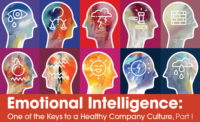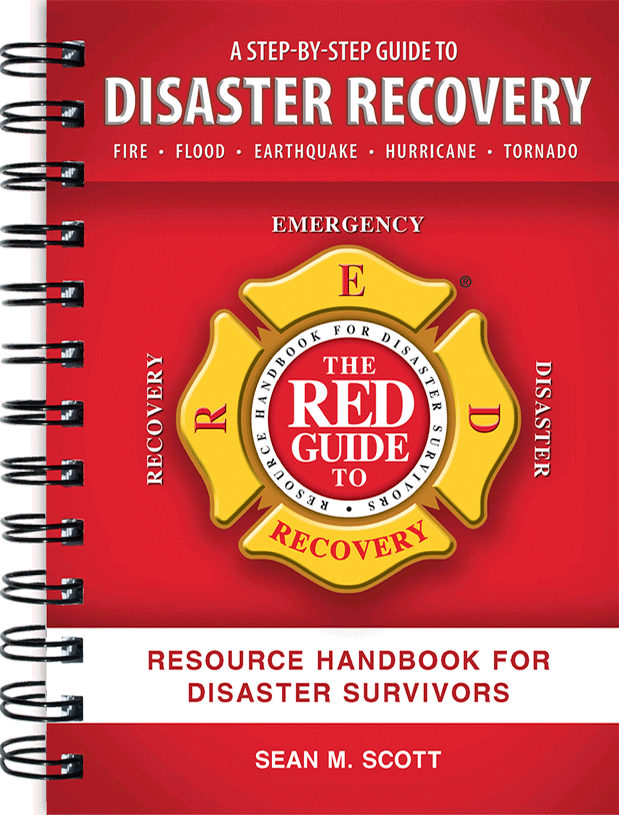Emotional Intelligence: One of the Keys to a Healthy Company Culture

Part one in this four-part series provided an introduction to the concept of Emotional Intelligence (EQ), including identification of the four characteristics that are generally agreed to be at its core.
The first characteristic, self-awareness—thoroughly understanding yourself and your effect on others—was reviewed. This included our personal strengths and weaknesses relative to our emotions, how they affect us, our ability to think and communicate rationally, and how they influence our thoughts and actions.
This installment covers the second trait of what is termed “personal competence”—the need for self-regulation.
Consider a time when stress overwhelmed you. Was it easy to think clearly or make a rational decision? Probably not. When you become overly stressed, your ability to think clearly and to accurately assess emotions—your own and other people’s—becomes compromised. Effectively engaging your emotional intelligence means being able to use your emotions to help you to make constructive decisions about your behavior. It is the ability to control emotions and impulses. People who self-regulate typically don’t allow themselves to become too angry or jealous, and they don’t make impulsive, careless decisions. They think before they act.
Characteristics of self-regulation include thoughtfulness, comfort with change, integrity, and the ability to say no. Employees with this perspective and skill are the ones you want on your team; the ones you want to work with. They aren’t always looking for credit or attention for their accomplishments. They allow others to shine.
To evaluate your ability to self-regulate, begin by examining how you, or others with whom you work, react to stressful situations. Do you become upset every time there is a delay, a roadblock, or things just don’t go the way you want? Do you blame others or become angry with them even when it’s not their fault? These are signs of poor self-regulation. The boss or fellow employee who is constantly cursing and yelling at people doesn’t have the frame of mind to appreciate the impact their emotions are having on their behavior. They haven’t learned to recognize what triggers those emotions in the first place.
What are some ways that a person’s self-regulation can be improved?
It is important to understand what triggers a person’s emotional response. It begins with being able to connect with our emotions and recognize when we are feeling anger, sadness, fear, or joy and the accompanying physical sensations that may be felt in our stomach, throat, or chest. Think about the situations and conditions under which these occur. Making a list of the times when strong emotions are felt during the workday will provide valuable insight into the scenarios, topics, or conditions that are acting as triggers. This knowledge can help you to anticipate your emotional response and better manage your behavior.
A valuable asset in this facet of EQ is having a peer who is trained to recognize when triggers are having a negative effect on someone’s behavior. They can assist by communicating the emotion they are seeing and helping to diffuse the source of stress.

Stress management is a key component in this aspect of emotional intelligence.
Stress is an automatic response from your nervous system, so some stressors arise at predictable times: your commute to work, a meeting with your boss, or family gatherings are examples. When handling such predictable stressors, you can either change the situation or change your reaction.
Adaptability is another characteristic that, when enhanced, can turn what may have previously triggered an emotional response into an opportunity to keep moving forward but in a different direction. Emotionally intelligent people are able to recognize and determine when to continue their course and when it’s time for a change.
Similarly, when one strategy is not working, try evaluating and determining if something else will work. From the way you treat yourself to how you treat others to your daily routine, always stay open-minded and be willing to adapt and introduce new elements into how you think and what you do.
Effective self-regulation is the ability to control and redirect destructive impulses and moods. Rather than yelling at a coworker who didn’t complete a task or did something incorrectly, get yourself into the habit of thinking through and discussing the reasons for the mistake. Is more training needed? Was there clear communication of what was expected and by when?
Here are some other ways to improve your self-regulation skills in the workplace:
- Find techniques to release workplace stress. Having hobbies outside of work is a great place to start. Physical exercise is also a healthy way to release stress.
- Keep your cool. Accept the fact that you cannot control everything. Look for helpful ways you can respond to triggers that don’t add fuel to the fire.
- Think before making decisions. Emotions can overwhelm you in the heat of the moment, but you can make a calmer, more rational, choice if you give yourself a bit of time to consider all the possibilities.
With the ability to manage stress and stay emotionally present, you can make constructive decisions about your behavior, be more thoughtful, and better adapt to changing situations.
In part three of this series on emotional intelligence, we’ll explore the first of the “social competence” traits—social awareness.
Looking for a reprint of this article?
From high-res PDFs to custom plaques, order your copy today!







